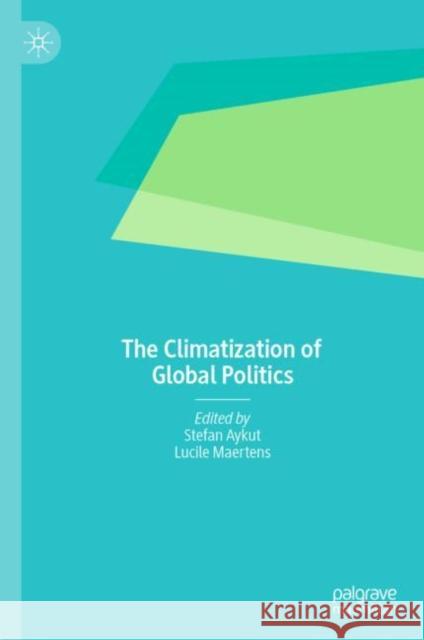The Climatization of Global Politics » książka
The Climatization of Global Politics
ISBN-13: 9783031178948 / Angielski / Twarda / 2022 / 163 str.
The Climatization of Global Politics
ISBN-13: 9783031178948 / Angielski / Twarda / 2022 / 163 str.
(netto: 422,69 VAT: 5%)
Najniższa cena z 30 dni: 424,07
ok. 16-18 dni roboczych.
Darmowa dostawa!
This volume examines the process through which climate change is transforming global governance, as both an increasingly central issue on the international stage and an increasingly structured policy domain with its specific modes of governing, networks of actors, discourses, and knowledge practices. Collectively, the contributions aim to assess how and why climate change is becoming a dominant frame in international politics. In doing so, they also contribute to understanding the dynamics and drivers of climatization.As global warming progresses and efforts to mitigate and adapt intensify, living under a changing climate—or in a ‘new climate regime’ (Latour 2015)—increasingly appears as a central feature of ‘our’ new, and highly unequal, human condition in the Anthropocene. In other words, we firmly believe that climatization is here to stay. It is thus crucial to better understand this process, recognizing its problems and ambiguities, but also examining its transformative potential and identifying the conditions under which such potentials can be harnessed with a view to building a more effective and equitable climate politics. We think that the chapters in this book contribute to this endeavour.
This volume examines the process through which climate change is transforming global governance, as both an increasingly central issue on the international stage and an increasingly structured policy domain with its specific modes of governing, networks of actors, discourses, and knowledge practices. Collectively, the contributions aim to assess how and why climate change is becoming a dominant frame in international politics. In doing so, they also contribute to understanding the dynamics and drivers of climatization.As global warming progresses and efforts to mitigate and adapt intensify, living under a changing climate—or in a ‘new climate regime’ (Latour 2015)—increasingly appears as a central feature of ‘our’ new, and highly unequal, human condition in the Anthropocene. In other words, we firmly believe that climatization is here to stay. It is thus crucial to better understand this process, recognizing its problems and ambiguities, but also examining its transformative potential and identifying the conditions under which such potentials can be harnessed with a view to building a more effective and equitable climate politics. We think that the chapters in this book contribute to this endeavour.











